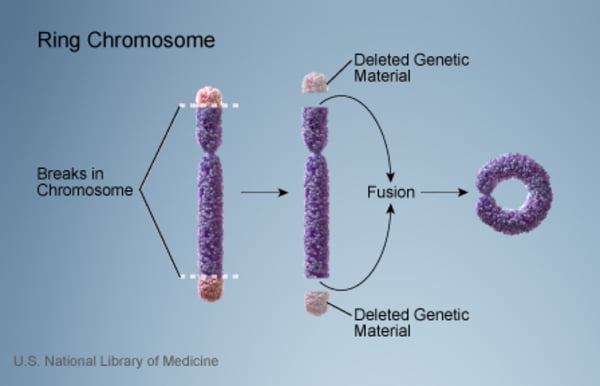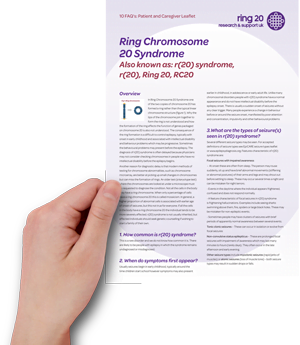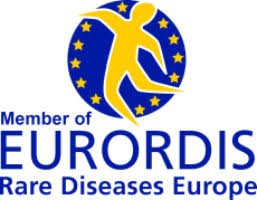What is Ring Chromosome 20 Syndrome
r(20) syndrome is a very rare condition in which one of the two copies of chromosome 20 has formed a ring rather than the typical linear chromosome structure. Why the tips of the chromosome join together to form the ring is not understood and how the formation of the ring affects the function of genes packaged on chromosome 20 is also not understood. The consequence of the ring formation is a difficult to control epilepsy, typically with onset in early childhood and associated with intellectual disability and behaviour problems which may be progressive. Sometimes the behavioural problems may present before the epilepsy. Seizures do not typically respond to treatment and there is currently no recommended treatment for r(20) syndrome.
We don’t know how common r(20) syndrome is, though it is perceived to be underdiagnosed or misdiagnosed in some people with epilepsy.
There are two distinct forms of r(20) syndrome: non-mosaic where the ring is found in every cell in the body (the most severe form of the disease) and mosaic, where the ring is seen in only a percentage of the cells (this is the more common form of the disease).

The syndrome has these key features:
First Signs
Usually seizures begin in early childhood, typically around the time children start school however symptoms may also present earlier in childhood, in adolescence or early adult life.
Seizures
There is usually a sudden onset of seizures without any clear trigger. At onset seizures are often from sleep. These may occur several times a night and can be mistaken for night terrors.
Cognition
Learning difficulties may present ranging from very mild to severe. Difficulties may be apparent before seizures develop but they may become more obvious following the onset of epilepsy.
Behaviour
Many people experience a change in behaviour
before or around the seizure onset, manifested by poor attention and concentration, impulsivity and other behavioural problems
General Health
Unlike many chromosomal disorders people with r(20) have a normal appearance and do not have intellectual disability before the epilepsy onset. They are usually otherwise healthy.
Seizures
Seizures are the main symptom in r(20) syndrome, but what types of seizures do individuals experience?
Treatments and Therapies
Find out what treatments and therapies are available for people with r(20) syndrome
Epilepsy and (r20)
r(20) syndrome is a rare form of complex epilepsy. Find out more about epilepsy and r(20) here…
Patient Journey
What can you expect when you have a diagnosis of r(20) syndrome? We’ve charted a typical path showing what your needs might be over time.

Looking for more information?
Download our pdf information sheet on Ring20 or click here for ways to contact us.








